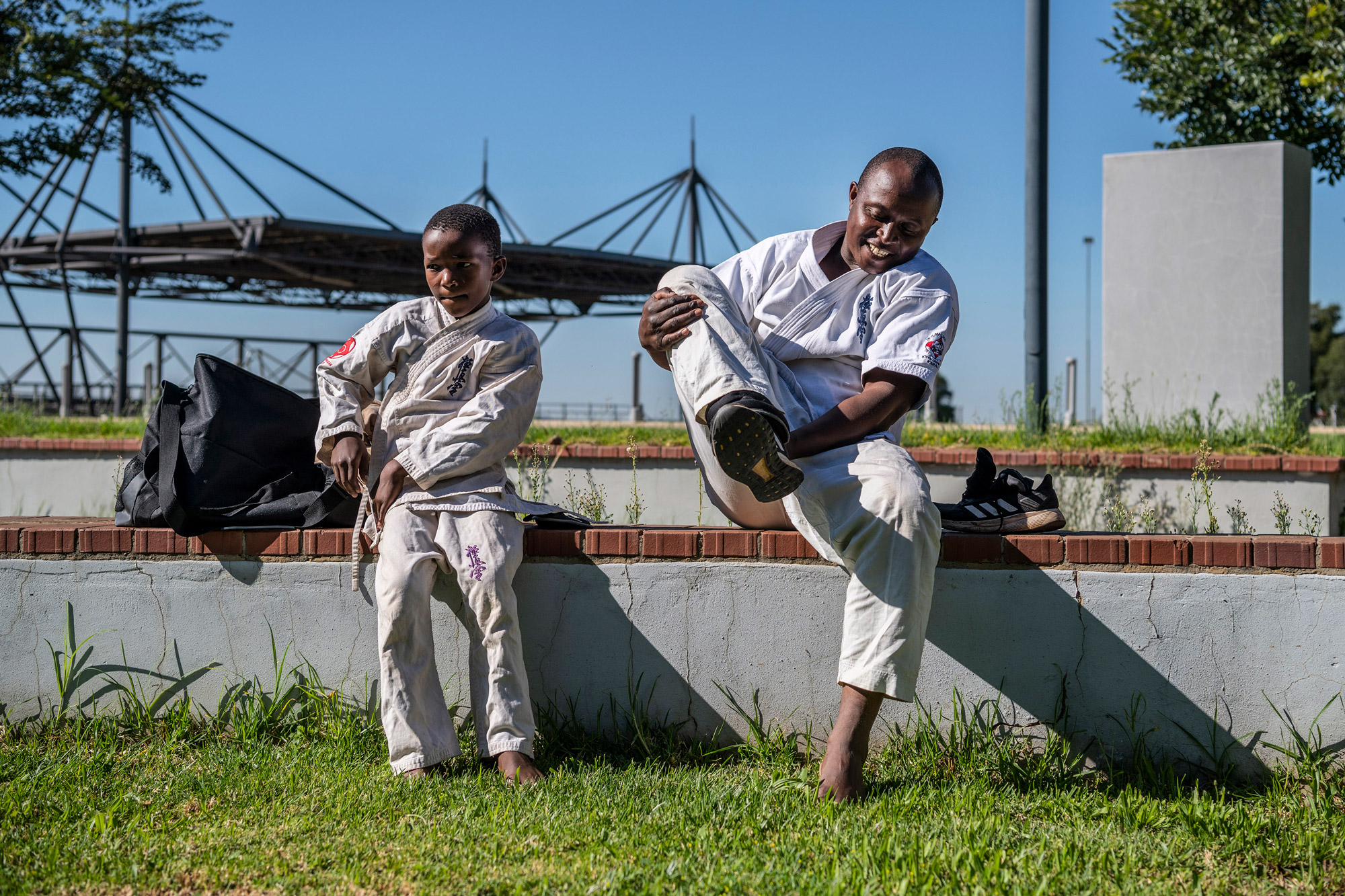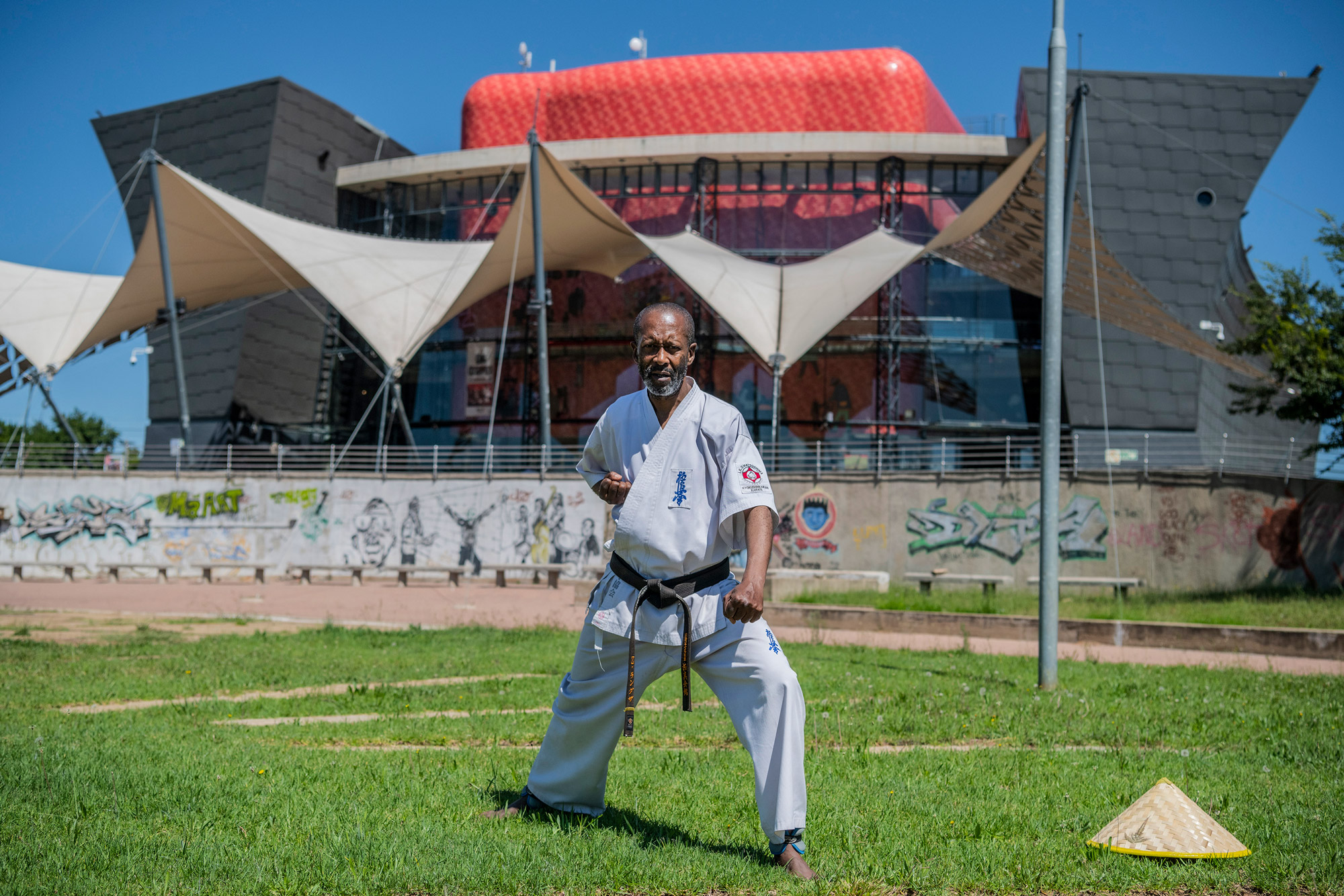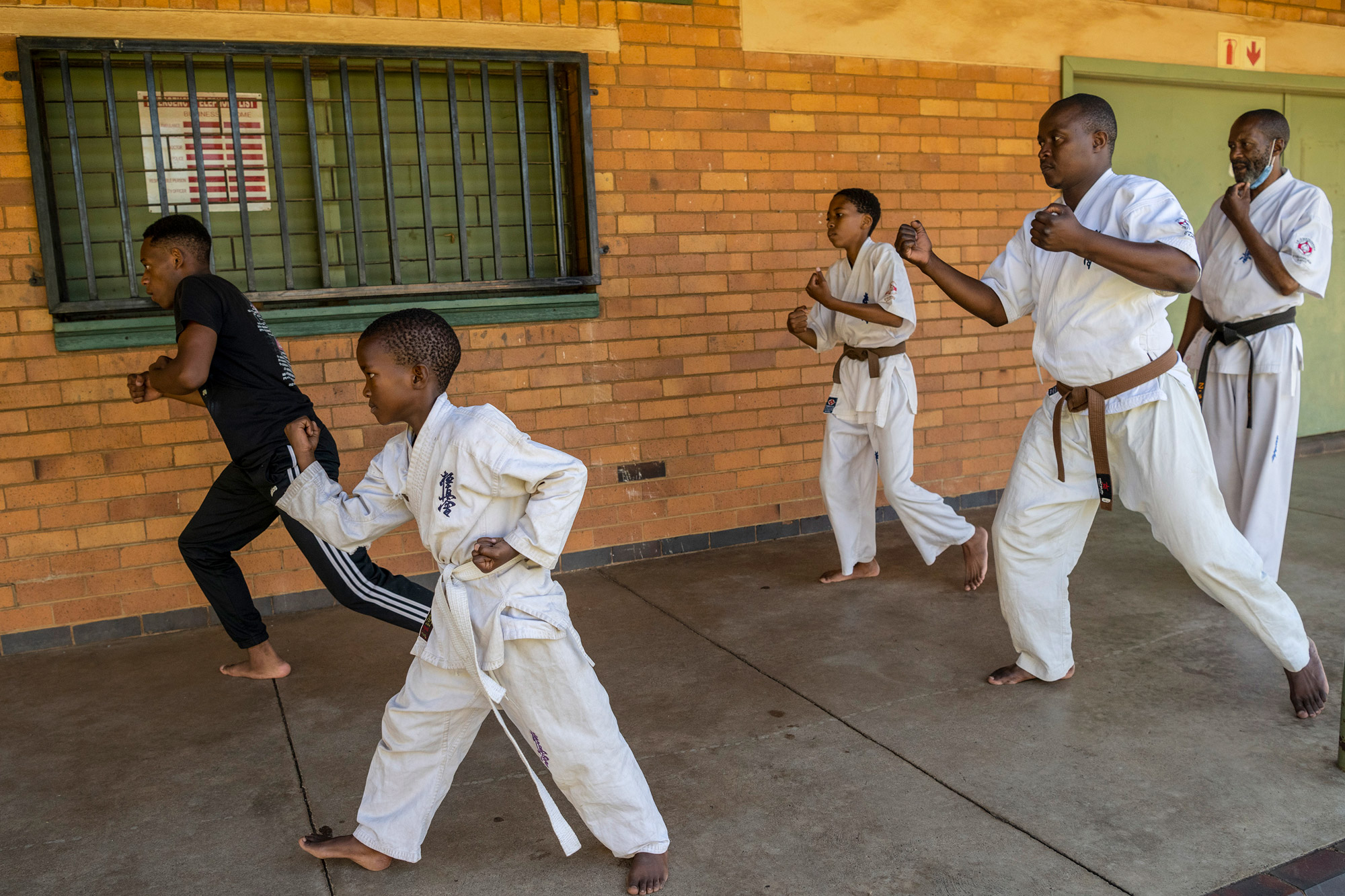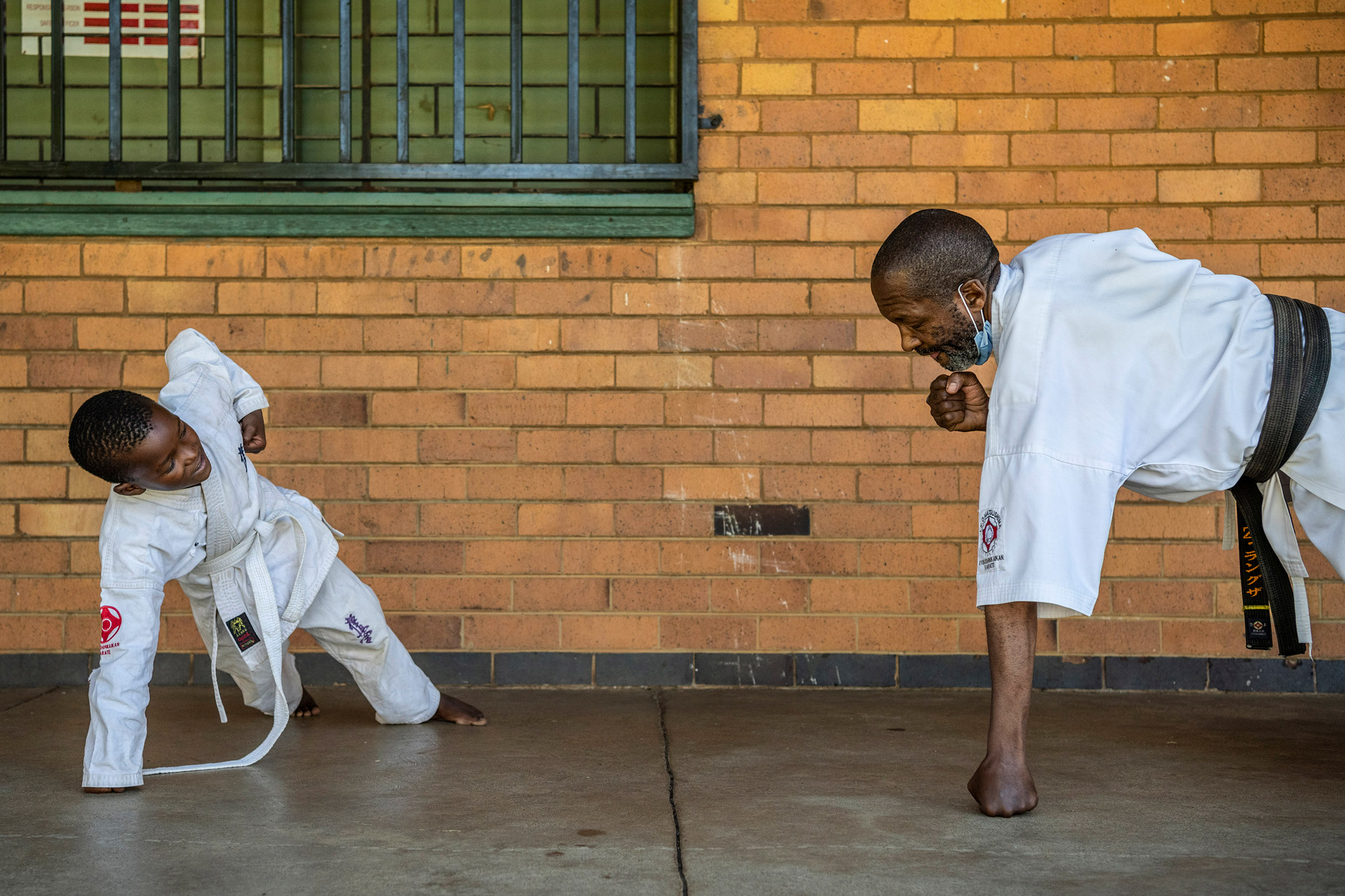Soweto’s ‘veranda dojo’ is a symbol of perseverance
Visitors to the Soweto Theatre precinct might be surprised to see a group of young karatekas practise in a space without walls, but their sensei loves that karate is at home among the arts.
Author:
5 April 2022

The Covid-19 pandemic inadvertently helped Zola Languza, 58, realise his dream of expanding and repositioning his Soweto Karate Dojo. The sensei, whose dojo specialises in full-contact Kyokushin karate, one of the most popular styles, used to train karatekas at Pace College in Soweto.
But when the pandemic hit, the dojo had no home until the Soweto Theatre came to its rescue, offering it space to use in the precinct. For Languza, this meant that karate was finally being considered an art form, just like dancing and music.
The veranda of one of the old buildings in the Soweto Theatre precinct is hardly a place one would expect to see between 20 and 30 children and young people go through an intense and gruelling training regime under Languza’s watchful eye. But that is what happens each day after school.

“They [the Soweto Theatre] are renovating the place where we will train. They are putting in new fittings and they want to share it with us. Their children will be doing drama training there and then us with our karate training [will use it afterwards],” said Languza.
In the meantime, the open veranda is perhaps symbolic of a dojo that has no barriers to joining it, though not everyone manages to last long. “There is a high drop-out rate because karate training is hard and [some] township kids don’t last long because they are not used to this pain,” said Languza.
“A few stay longer and graduate. If you follow karate teachings, it says the pain you endure in training is the same pain you will endure in life, and the discipline you are taught is the same discipline one must practise outside.”
More than a sport
Languza, who works for Gauteng’s Department of Cooperative Governance and Traditional Affairs, views karate as more than just a beneficial pastime that keeps children and young people off the streets. Instead, he says, the values that the sport instils can benefit society as a whole.
He laments that unlike more popular sporting codes, the government has not been “progressive” in its support for martial arts. “We have been running the dojo for almost 10 years, going from place to place [at different] schools. Our problem is that the government and private sector are not supporting us.
“In Japan and China, martial arts is a priority of the government, with researchers and people employed by the government to run karate dojos,” said Languza, who believes those societies’ values are “intact” as a result.
Languza is also concerned about how the alcohol industry has a strong presence in, for example, football sponsorship. “Those things corrupt our youth, and karate is not corrupting our youth,” he said, adding that karate is “a sport of choice that takes the youth away from alcohol and drugs, but the people behind alcohol don’t want our youth to not be corrupt”.

His son Bandile, 15, who has been involved in karate since the age of seven, agrees that karate is about more than doing a sport. “It’s not just about training. It also teaches you mental and emotional [awareness] and how to control yourself,” said Bandile. “I wanted to stay out of the streets, because it is full of drugs and unhealthy things. My dad asked me if I was interested in karate and I decided to try it out.”
According to Languza, the problem with how karate is taught in South Africa is that the main focus is on winning tournaments and not on teaching, which combines both theory and practice. This can be remedied by having the right kind of leadership running martial arts bodies, he believes.
Driven by his passion for karate and a sense of social responsibility, Languza sacrifices much of his time to train and impart life skills to his karatekas. And though the conditions may be difficult, it has not deterred him. He is proud of some success stories that have come out of his dojo, including that five of his sensei were involved in coordinating fighting scenes for an upcoming big-budget film about a well-known African warrior king.

